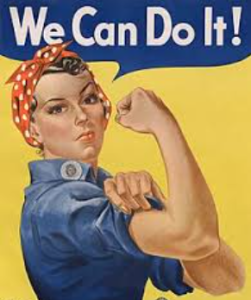1
Section One: The Fundamentals
A) What do we know about sport? What are common assumptions we make about sport and society?
|
Unfortunately from my experiences and observations, sports do not always transcend politics, and sport is not always a measure of individual merit- often the two beliefs are also connected. When it comes to most sports, becoming more prevalent in the higher levels of competition, some athletes have an upper hand in advancing in their sport depending on a multitude of factors. The connection of politics becomes relevant when looking at the different social positions athletes find themselves in; factors such as monetary support, geographical location, and social positions of power (e.g., having connections to high-quality training/trainers/facilities), and more can be a determining factor in an athlete’s success
|
Exercise 3: Notebook prompt
What are some other metanarratives about sport that you are familiar with? Find an image or video clip or draw something yourself that captures this idea…
So what? Why does any of this matter? Does it matter? As something we grow up with – live with – play through – we don’t often interrogate the meanings of sport, and perhaps we don’t want to.
But being aware of these assumptions and metanarratives is especially important, I would argue, because of the centrality of sport to our everyday lives, the role that sport plays in shaping our childhood and worldviews and….. [finish that thought]
|
|
B) What is social justice?
Exercise 4: Padlet Prompt
Think back to the last section and try to look at some of the ideas we discussed differently. How might sport and social justice actually co-exist?
Record any images, video clips, or gifs you added to the padlet and identify a point of intersection between sport and social justice (can be an issue or a barrier or a debate or something you would like to explore in more depth in this course) . Screenshot or paste in your response below.
|
|
C) Social Justice Reading
(note: this activity is optional!)
D) KINESIOLOGY AND SOCIAL JUSTICE
Exercise 5:
Exercise 6:
What are the implications of bodies-at-risk discourse and the refusal to understand the health gap from a social justice perspective, according to the authors of this article?
| Driven by the current neoliberal conditions of healthism, the dominant discourse of bodies-at-risk represents a master narrative, or a “taken-for-granted assumption that becomes the norm,” which reflects, validates, and centers the views, opinions, and experiences of the mainstream majority of society (White and middle to upper-class status), which results in the undermining of the powerful historical, economic, and socio-educational forces that have resulted in the health gaps we see today.
The inability to understand the health disparity from a sociocultural and social justice viewpoint, by exclusively researching and classifying the deficits or underachievements of marginalized groups in kinesiology, health, and disability, produces another dangerous mainstream narrative of whiteness, or in other terms, another master narrative of Black inferiority. |
Section Two: Sport Feminism
Exercise 7: Notebook Prompt
What is feminism? What does it mean to you? Choose one of the images below and explain how it captures your understanding of feminism (or find one that does speak to you and paste this into your pressbook with an explanation of why it matters to you.

To me, feminism is the fight for equality for all individuals. No matter the country of origin, gender, race, sexuality, etc., feminism advocates for access to equal opportunity. I think people misunderstand or misconstrue the idea of what equality should look like from a feminist perspective- of course, there are different types of feminism and every individual has their understanding of feminism through their lived experiences, so I believe the idea of equality is often taken too literally- everyone is not born equal, however, feminism is about ensuring that no one is left majorly disregarded in society due to those differences. We must uplift each other and be the change we want to see. Feminism is extremely important to me, I’m very lucky to have grown up around a mom who showed me how to stand up for myself and others, and a father whose empathy and care made for a very good example of how the men in your life can be, and to never settle for less. In my feminism, I have been focusing on standing up for myself and others and holding people accountable for their own actions. One summer I dealt with pretty horrible sexual harassment from a coworker who was at least 20 years my senior; for months I felt powerless and alone, even though there were multiple male coworkers around who saw what was happening. When another female coworker around my age reached out to me about her experiences with him, we went to our boss, who immediately took action and went out of his way to protect both of us. Since this happened to me, I have made it my goal to call out inappropriate behaviour and advocate for victims of sexual harassment/violence. |
Exercise 8: Notes Prompt (optional)
NB: Cornell notes is a great resource that teaches effective notetaking. Unfortunately, our system can’t save notes taken in the H5P app, so this is fully optional.
Exercise 9: Crossword Activity
Exercise 10: Padlet Prompt
|
|

|
|

